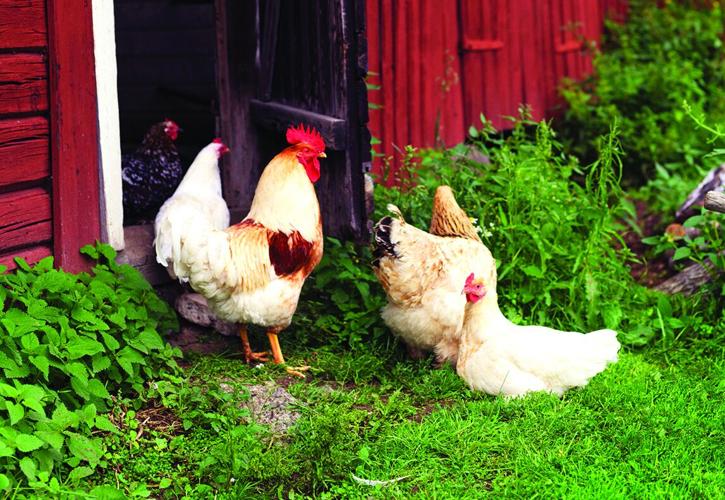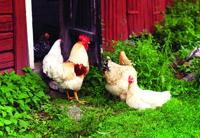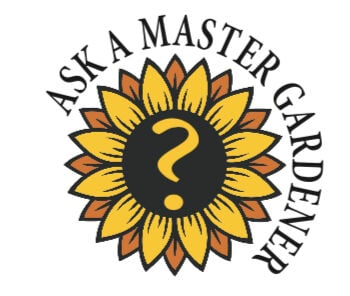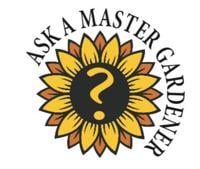There are several types of manures that can be used to fertilize your garden, including chicken, cow, goat, sheep, horse and rabbit. However, there are differences among them.
One key feature to remember is that when the manure is ready for using in your garden, it should have little to no odor. When adding manure to your garden, make sure it is virtually odorless, indicating that it has been properly composted.
If you use raw manure, work it into your soil 120 days for root crops, leafy greens or strawberries before you begin planting so it will naturally compost. For other crops, work it into the soil at least 90 days before planting.
But never use cat, dog or pig manure, as it may contain parasites that can infect humans.
When using cow or horse manure, you must ensure that the animals were not fed hay or ate grass that had been treated with herbicides that kill broadleaf plants.
Even though the grass has been dried to create hay, the herbicide does not get broken down in the animal’s digestive system and is excreted in its manure. It can take two to three years for the herbicide to fully break down while the manure is being composted.
It is possible to test the manure by seeding it with a few seeds of a fast-germinating vegetable like radish or turnip or flowers like marigold and zinnias. Let them grow until they produce two to four true leaves. If so, then the manure is safe to use. If they do not germinate and start to grow, then the manure must be left to compost.
One reason for composting the manure is that the form of nitrogen in fresh manure is not available for plants and must be converted to a useable form by microbe digestion. Also, any animal manure may harbor pathogens harmful to humans, and composting it at temperatures between 131F and 140F for several weeks will kill these pathogens.
The compost must be regularly turned so that all of it is exposed to these temperatures. If not turned and kept at these temperatures for several weeks, the result is aged manure, not composted manure, and it may still contain pathogens. Extra-long thermometers are available for checking the compost temperature.
Chicken manure is an excellent form of manure for vegetable gardens, as their digestive system is very good at breaking down weed seeds. However, fresh chicken manure is too rich in nitrogen, which will burn roots. It needs to be composted.
Rabbit manure is considered an excellent manure for vegetables, as it is rich in nitrogen and phosphorous. In fact, it has significantly more nitrogen, phosphorous and potassium than cow, horse or chicken manure. It also is best aged for 90 to 120 days as noted for other raw manures.
One type of composted manure that I find very useful is a combination of properly composted horse manure and the substrate that has been used to grow mushrooms.
The mushroom substrate contains hay, poultry or horse manure and residues like corn cobs. It contains nitrogen, phosphorous and potassium and is high in calcium, which is great for tomatoes.
It has been composted for about 30 days at 160F to kill weeds, pests and pathogens. However, it is high in soluble salts, which could kill germinating seeds. Thus, it is not a good strategy to use the mushroom substrate exclusively but combined with properly composted manure. This combination is available from some local suppliers of garden growing medium.
Another reason for using manure is that if your soil is very sandy, the manure will help absorb and retain moisture. In clay-based soil, manure will increase soil drainage.
Resources
“Guidelines for Using Animal Manures and Manure-Based Composts in the Garden [fact sheet]”
“Wise Use of Manure in Home Vegetable Gardens”
“Spent Mushroom Substrate”
“Using Rabbit Manure to Fertilize Vegetables”
“Guidelines for Using Manure on Vegetable Gardens”
For more information about gardening, visit UTHORT’s YouTube site for helpful videos:
Or Washington County’s YouTube site:
How do I ask a question?
If you have a question for the Master Gardeners, submit them to us on our website at . Click the link at the top of the page, “Ask A Master Gardener” to send in your question. Questions that are not answered in this column will receive a response from a Master Gardener to the contact information you provide.
The Master Gardener Program is offered by the University of Tennessee Extension. The purpose of the Master Gardener program is to train people as horticultural-educated volunteers. Thes e volunteers work in partnership with the local Extension office in their counties to expand educational outreach, providing home gardeners with researched-based information.













